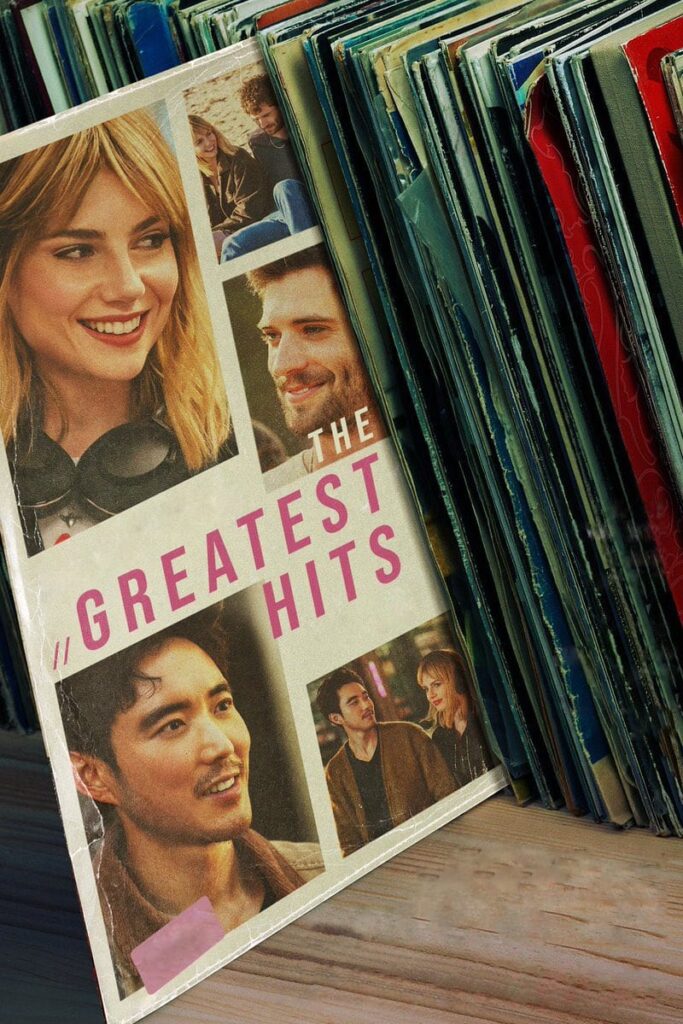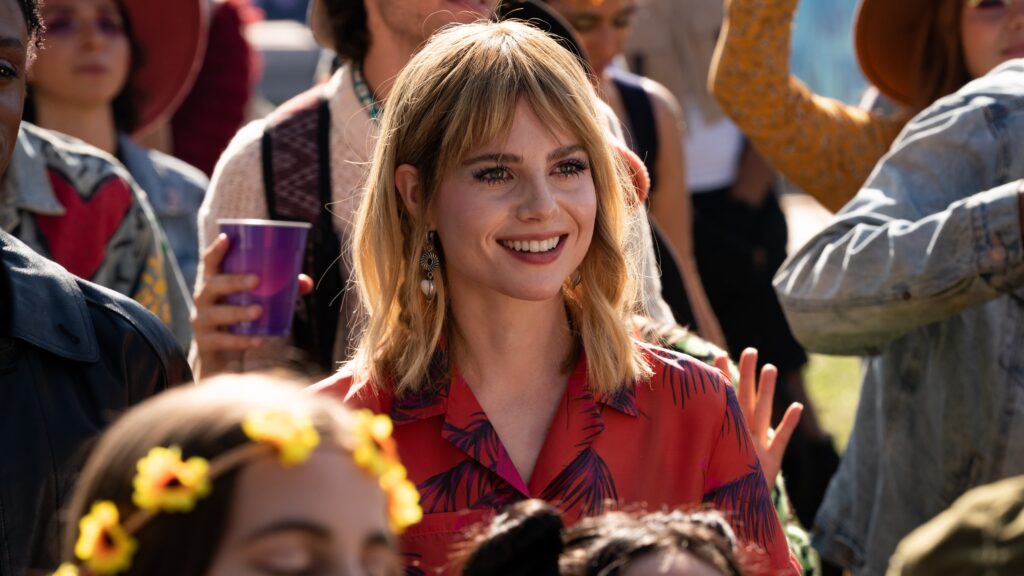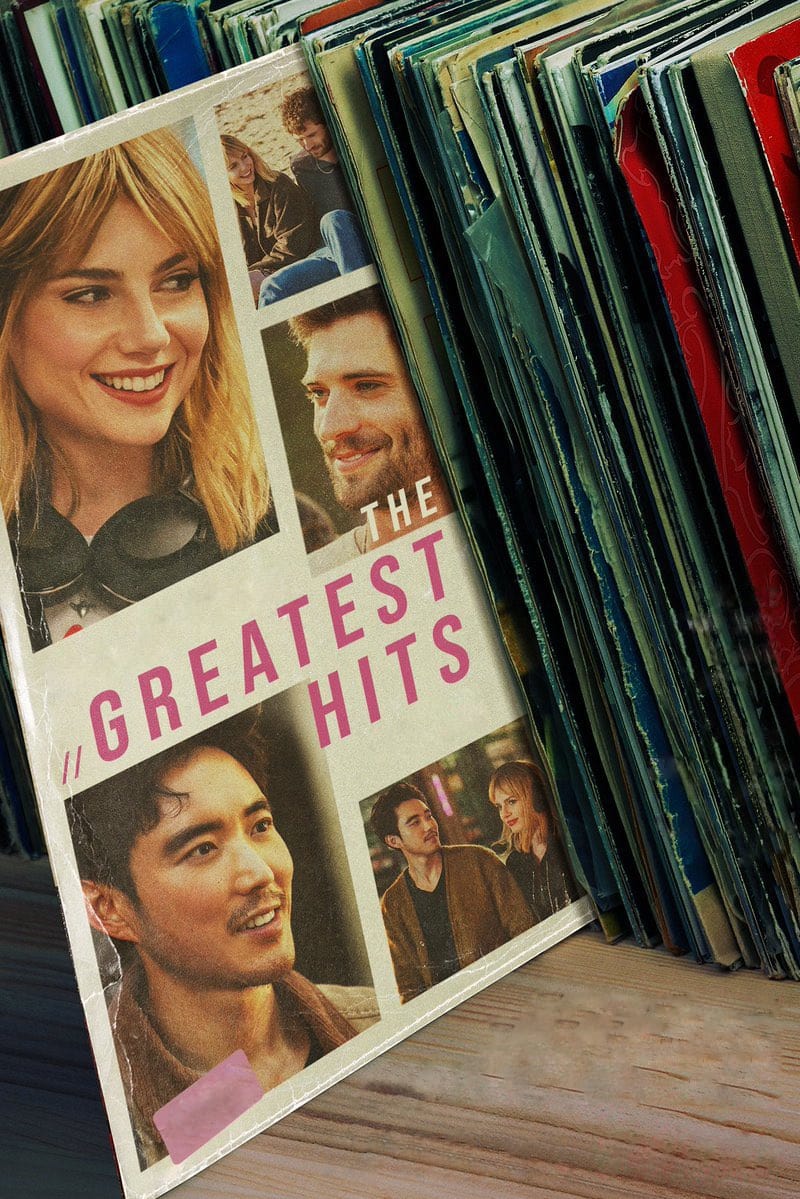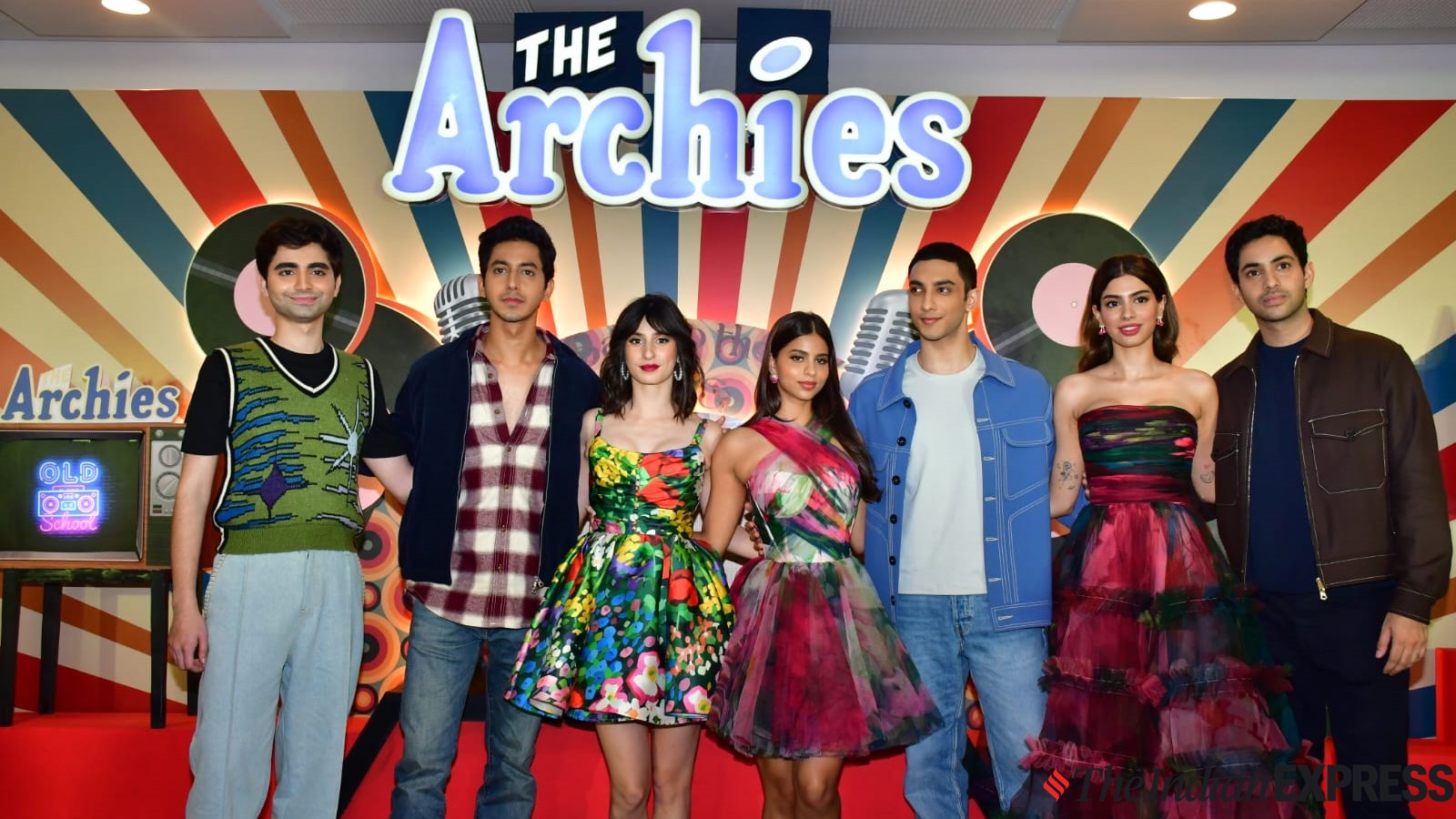A grandiose film about loss and music is lacking in execution.
“The Greatest Hits” takes the well-known anguish literally: As you travel down the road, your radio is playing nonstop. All of a sudden, that music starts playing—the one that makes you think of your ex or of a happy moment that has since faded into memory. You experience a time journey when you are fully immersed in that mental state. Furthermore, the want it arouses may be intolerable.

Here’s where Lucy Boynton’s character Harriet finds herself, however instead of feeling like she’s traveling through time, she’s actually speeding through the fourth dimension. Any song Harriet hears associated with memories of her late boyfriend Max (David Corenswet) literally propels her back to that specific moment in their relationship. Harriet lost Max in a horrible accident. She wears noise-canceling headphones when she leaves the house to guard against unplanned time travel brought on by radios and mischievous Spotify shuffles.
However, she spends her nights at home attempting to regress. Even two years after Max’s death, Harriet is still, in the words of another character, “hiding out in her grief,” since she has grown fixated on attempting to go back in time to make things right and guarantee that Max won’t pass away. During this time, Harriet meets David (Justin H. Min), a kind man who is also grieving, in her grief support group.
This is hardly new ground for “The Greatest Hits” writer and director Ned Benson. His first film, “The Disappearance of Eleanor Rigby,” was a trilogy consisting of two separate films that examined the turbulent, grieving relationship of a couple from each of their points of view, and a third that brought them together. (As the title implies, music also played a role in the narrative.) Both that movie and this one had a personal vibe. It eloquently captures the way that bereavement engulfs us in recollections, giving us the impression that our own timelines are slipping backward and spinning, stuck there forever. It feels difficult to move forward.

However, “The Greatest Hits” lacks “Eleanor Rigby’s” inventiveness and occasionally appears like it belongs in a different genre. The movie has all the makings of a rom-com: a cool setting (mainly the Los Feliz and Silver Lake neighborhoods of Los Angeles), a meet-cute, a queer best friend who is a staple of the genre (for better or worse), record crates, a pining scene, attractive guys, and even chemistry. However, this film lacks the lightheartedness and humor of a romantic comedy, which may counterbalance all the dark moments and make the film feel more palatable.
The current version seems more appropriate for young people in love who have recently experienced their first breakup than for grownups going through severe loss and grief, who are more experienced with how life doesn’t simply end when tragedy strikes.
“The Greatest Hits” moves slowly and repeatedly, although that doesn’t always have to be an issue: The ensemble has room to breathe and respond to one another, which helps them develop connections that feel somewhat genuine. This is made possible by the story’s moderate pacing and narrative. Comparably, the musical selections—which are wildly eclectic in terms of genre and historical period—are lively and novel, devoid of the sharp insight that a movie with a more precise soundtrack selection may have elicited. However, as the film progresses, it starts to feel trapped in its own lofty idea with little room to grow. Is there a reason why Harriet can only travel back in time to hear music that has a connection to Max? Are there any songs that remind her of moments she would rather forget?

Although there’s an intriguing movie circling “The Greatest Hits,” it’s unfortunate that there’s too much sentimentality and not enough consideration. It might nevertheless be satisfying for viewers looking for a nice cry. However, for those of us for whom the sensation of time travel fueled by music remains symbolic, it’s a distant dream that will never come true.
The Best Hits
With some language and innuendo, as well as discussions on death and mourning, the film is rated PG-13. Duration: 1 hour and 34 minutes.




